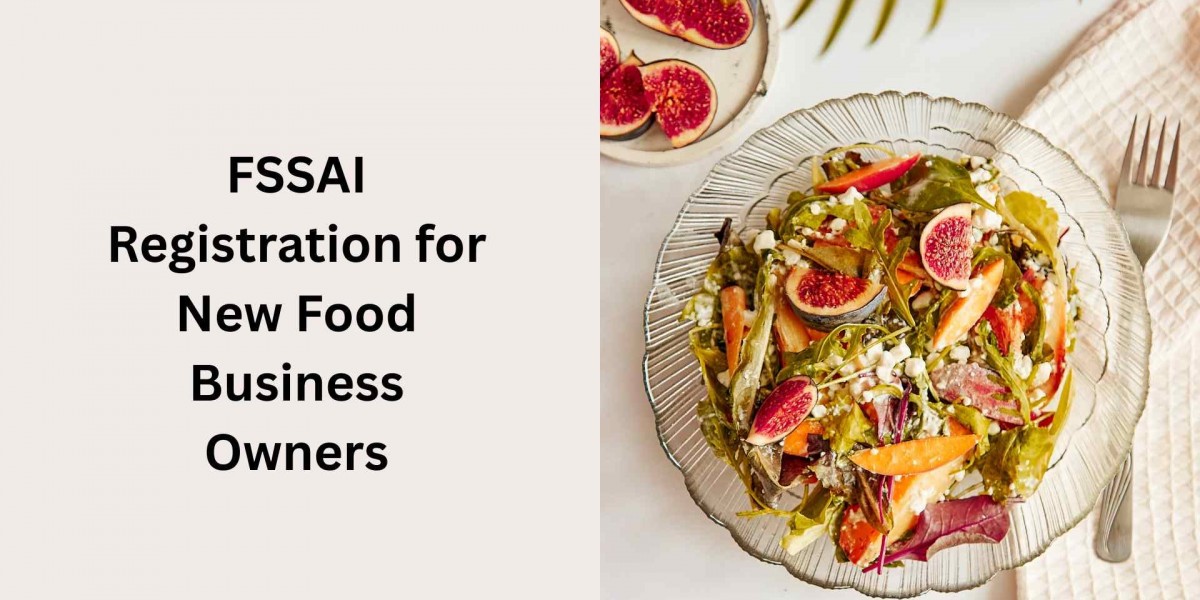Introduction
Starting a food business is exciting. Whether you're opening a small café, launching a cloud kitchen, selling homemade pickles, or beginning a food delivery service, there's one important thing you should never skip: FSSAI Registration.
FSSAI stands for Food Safety and Standards Authority of India. It is the government body responsible for food safety in India. Every new food business owner, big or small, needs to register with FSSAI before starting operations.
This article explains everything you need to know about FSSAI registration in simple language—what it is, why it matters, how to apply, and how it helps your business grow legally and confidently.
What is FSSAI Registration?
FSSAI registration is the legal process of getting your food business recognized by the government. It gives you a unique 14-digit registration or license number, which you must display on your food packages or premises.
It’s mandatory for all food-related businesses, including:
Street food vendors
Home-based food sellers
Bakeries, cafés, and restaurants
Food manufacturers and packagers
Online food delivery services
Importers and exporters of food
This registration ensures that your business follows basic hygiene, safety, and quality standards as per Indian law.
Why is FSSAI Registration Important for New Food Business Owners?
Here are some key reasons why every food business owner should register with FSSAI:
1. It’s Legally Required
Under the Food Safety and Standards Act, 2006, no person can start or run a food business without FSSAI registration or license. Running a food business without it is illegal and may result in penalties, fines, or even business closure.
2. Builds Trust with Customers
Customers are more likely to buy food from a place that has an FSSAI number displayed. It gives them confidence that the food is safe, clean, and government-approved.
Especially for online and packaged food businesses, FSSAI registration builds brand trust and reputation.
3. Better Business Opportunities
Most marketplaces, food delivery platforms (like Swiggy and Zomato), and wholesale buyers require your FSSAI number. Without it, you can’t expand into bigger markets or partner with established vendors.
4. Helps in Quality Control
FSSAI registration encourages businesses to follow basic hygiene practices. You will be more careful about food quality, cleanliness, and storage, leading to better customer satisfaction and fewer complaints.
5. Easier Access to Loans and Schemes
Government schemes and bank loans for food startups often require FSSAI registration. It shows that your business is compliant and ready for financial help.
Types of FSSAI Registration and Licenses
There are three levels of FSSAI registration depending on your business size and turnover:
1. Basic FSSAI Registration (For Small Businesses)
For businesses with annual turnover up to ₹12 lakhs
Suitable for home kitchens, street food vendors, small sellers
Simple process and minimal documents
Valid for 1 to 5 years
2. State FSSAI License
For businesses with turnover between ₹12 lakhs and ₹20 crores
Needed by medium-sized businesses, restaurants, mid-level manufacturers, etc.
Requires more documentation and inspections
3. Central FSSAI License
For businesses with turnover above ₹20 crores
Required for import/export, large manufacturers, MNCs
More detailed process with government inspections
Who Needs FSSAI Registration?
Any person or business involved in food activities needs FSSAI registration. This includes:
Food vendors and hawkers
Home chefs and tiffin services
Food truck or cloud kitchen owners
Packaged food manufacturers
Beverage companies
Sweet shops and bakeries
Grocery stores and supermarkets
Online food businesses
Food exporters and importers
Even if you're just selling homemade pickles or sweets from home, you need to register with FSSAI.
How to Apply for FSSAI Registration Online?
The process is quite simple:
Visit the FSSAI Website: Start by going to the official FSSAI registration portal online.
Fill in Basic Details:Enter your personal and business details—like your name, phone number, email, business name, type of food you deal with, business type, and full address.
Upload Your PAN Card:Add a scanned copy or photo of your PAN card as part of the application.
Double-Check and Submit:Review all your information to make sure it’s correct, then hit the "Submit" button.
Pay the Registration Fee: Pay the applicable fees online using UPI, debit/credit card, or net banking. The fee depends on your license category.
OTP Verification Call:You’ll receive a call from our team to verify your mobile number or email using a one-time password (OTP).
Inspection (If Needed): In some cases, FSSAI officers may visit your premises for a quick inspection.
Get Your License: Once everything is approved, your FSSAI license will be available for download from the official website.
What Happens After Registration?
Once you get your FSSAI number:
Display it at your shop/kitchen, or on packaging
Follow food safety rules
Renew the registration before it expires
Report any major changes in your business
If you violate FSSAI norms, your license may be suspended.
Benefits of Having FSSAI Registration
Here are the major advantages of registering your food business:
Legally valid and safe business
Builds trust among customers and partners
Expands market reach (offline and online)
Required for Swiggy, Zomato, Amazon, Flipkart, etc.
Easier to get loans, subsidies, and export permissions
Encourages hygienic practices and quality service
Note: You can also apply for Tatkal FSSAI Registration from our website
Conclusion
If you're a new food business owner, FSSAI registration should be your first step. It is simple, affordable, and protects both you and your customers. It gives your business a legal identity, builds customer confidence, and helps you grow smoothly in the competitive food market.
No matter how small your venture is, homemade snacks, catering, or a full-fledged restaurant, get FSSAI registered and run your food business the right way.
































